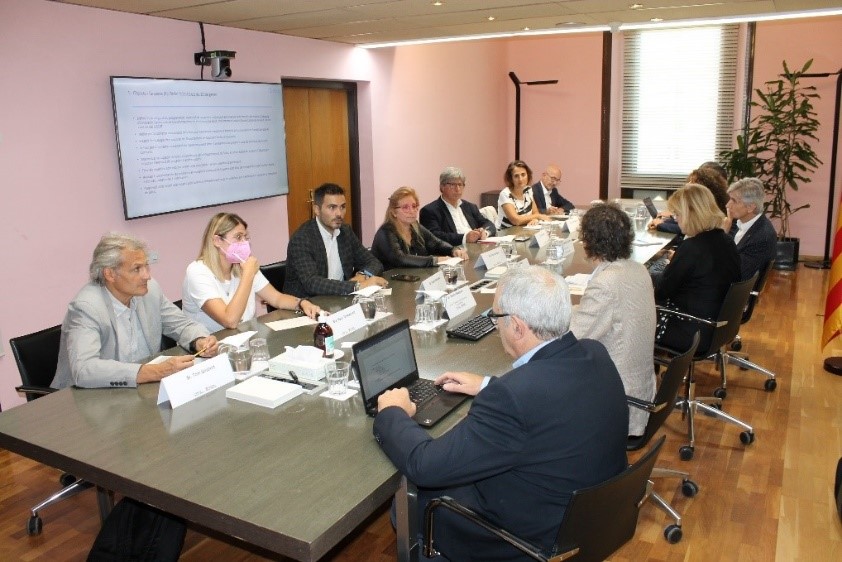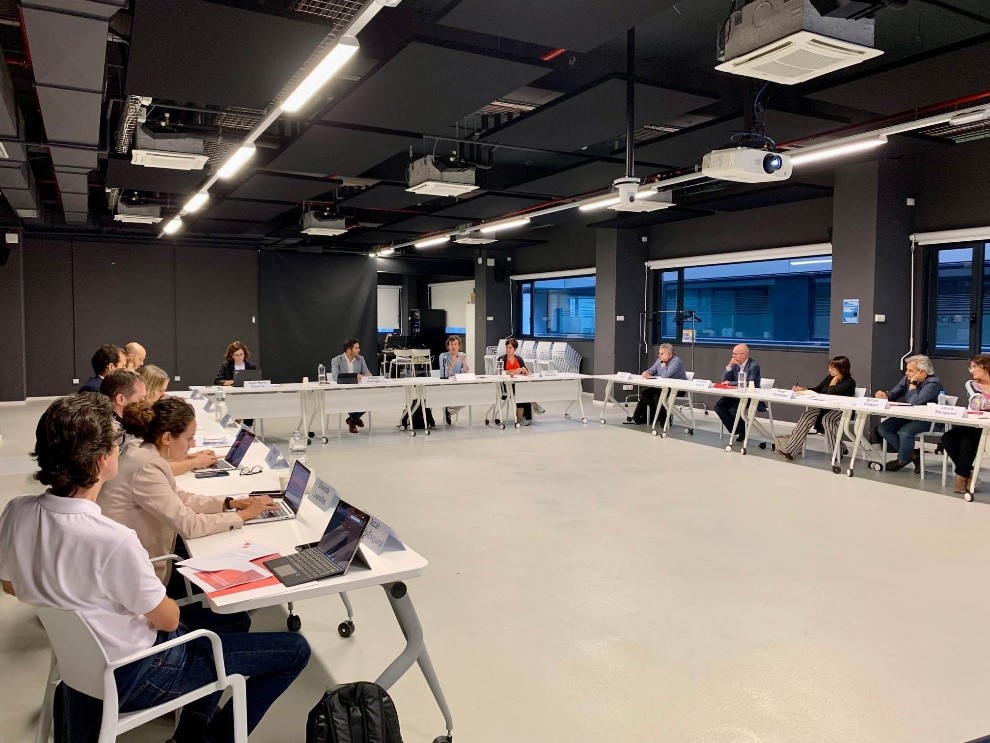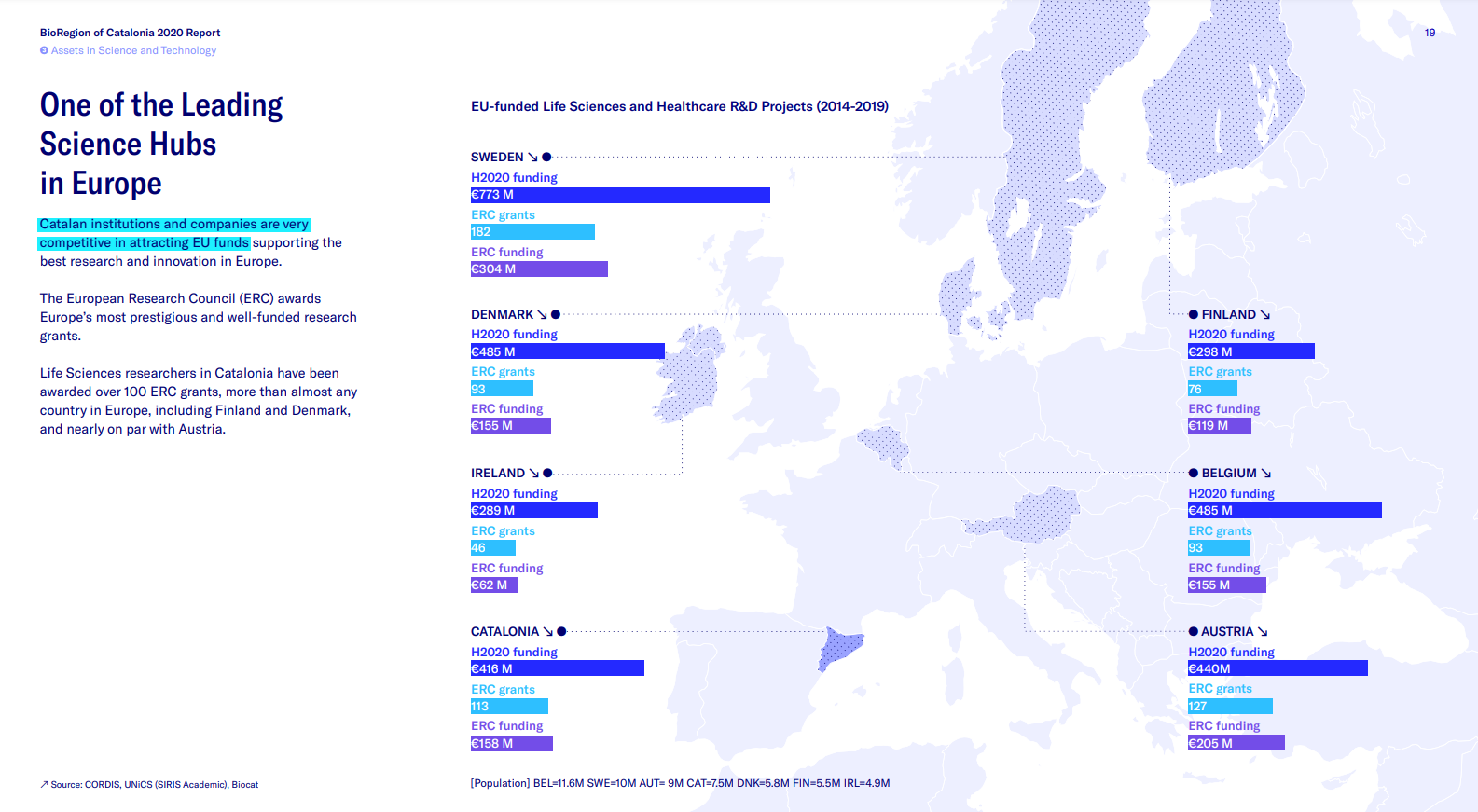Innovation as a key component in Catalonia’s healthcare system

COVID-19’s impact on society and especially on health systems is leading to an accelerated global transformation designed to implement the improvements the pandemic brought to the fore and draw the greatest lessons from a global crisis without contemporary precedent.
The strategic strands which science and biomedical research in Catalonia is addressing are sustainable models that embrace animal health and environmental health as essential assets to safeguard human health; digital transformation to democratise healthcare by making it more accessible and personalised yet also more flexible and efficient; and advanced therapies to unlock new hope with emerging and disruptive solutions to present and future diseases.
It is against this global backdrop that the BioRegion of Catalonia has the opportunity to gain a prominent international position since it is one of the foremost ecosystems in Europe in terms of scientific output in health and life sciences on a par with leading countries such as Denmark, Austria and Finland1.
However, this assessment changes significantly when we look at the difficulties the system still has in transferring knowledge to society. We are at the cutting edge of research yet we still do not have an equivalent impact in terms of development, innovation and the ability to bring research results to patients. Small and large companies often have to navigate a tortuous and complex journey in order to deliver innovative solutions to the point of care. This means that the indicators in this area are particularly poor when compared with other state-of-the-art regions in Europe.
Hence “one of the main challenges we have as a country is uptake of this technological innovation in the public health system,” argues Robert Fabregat, CEO of Biocat. “In other words, ensuring that research which can furnish new solutions to real challenges, needs and problems reaches healthcare centres and thereby helps enhance people’s wellbeing and health.”
Indeed, the main challenges for the ecosystem going forward as it tackles a transformational and disruptive future are:
- Facilitating the transfer of knowledge from academia to industry while promoting public-private partnerships.
- Clarifying the processes for validating and scaling up new technologies towards the mass production and subsequent marketing stages.
- Streamlining the pathways for accessing and rolling out this innovation in health facilities.
This appraisal of our system’s shortcomings and problems is widely accepted in the industry. It is not only research centres that are aware of their difficulties in transferring the knowledge they generate or businesses of the obstacles to developing their products. Evaluation agencies also need additional support to achieve a broader and more systemic view of the entire value chain and the stakeholders engaged in it. Equally, healthcare providers do not have sufficient tools and resources to flexibly and efficiently identify, select, mainstream and fund the innovation which health systems need.
New Catalan Healthcare System Innovation Uptake subcommittee
It is against this background that Biocat has recently been commissioned by the Ministry of Health to set up and coordinate the Healthcare System Innovation Uptake subcommittee, a cross-cutting, multidisciplinary team which for the first time brings together the main ecosystem stakeholders covering all the innovation stages outlined above and is part of the Commission on Innovation and Transformation of the Healthcare System set up in October.

First meeting of the Commission on Innovation and Transformation of the Healthcare System held on 3 October 2022. Photo from the Catalan Ministry of Health.
“The subcommittee’s main mission is to reach a consensus on this priority pathway for bringing innovative solutions to the healthcare system in order to expedite and fast-track access to healthcare centres and consequently to patients for these new technologies, therapies and processes,” explains Fabregat. The focus will mainly be on strategic projects which transform the system and make it more resilient, potentially enhance people’s health and wellbeing and contribute to the country’s social and economic development and progress.
The members of the Healthcare System Innovation Uptake subcommittee are:
- Ramon Maspons, Strategic Director of the Commission on Innovation and Transformation of the Healthcare System and CIO at the Catalan Healthcare Assessment and Quality Agency, AQuAS
- Robert Fabregat, Coordinator of the Subcommittee and CEO of Biocat
- Xavier Aldeguer, Director General for the Knowledge Society, Transfer and Territory, Ministry of Research and Universities
- Elisenda Casanelles, former Director of Operations, CIMTI, and recently appointed Account Manager at GE Healthcare Iberia
- Cristina Casanovas, Head of the Projects and Quality of Care Division, Catalan Health Service
- Roser Fernández, CEO, Unió Catalana d'Hospitals
- Òscar Garcia-Esquirol, Chief Medical Officer, Barcelona Health Hub
- Toni Gilabert, Director, Innovation and Partnership Division, Health and Social Consortium of Catalonia
- Francesc Iglesias, Head of the Office of Innovation and Research Support, Management Directorate, Catalan Health Institute
- Lluís Juncà, Director General for Innovation and Entrepreneurship, Ministry of Business and Labour
- Fina Lladós, member of Farmaindustria and CEO for Spain and Portugal at Amgen
- Miquel Martí, CEO, Tech Barcelona
- Glòria Palomar, Director of Management, Institute of Research and Innovation, Parc Taulí
- Marc Pérez, Chair of FENIN Catalonia and Vice President for Western Europe and Africa at the Hartmann Group
- Laura Sampietro, Director of the Technical Office for the Evaluation of Innovations, Hospital Clínic de Barcelona
- Mariona Serra, First Vice-President of CataloniaBio & HealthTech and CEO of GoodGut
- Rosa Maria Vivanco, Director of the Assessment Division at the Catalan Healthcare Assessment and Quality Agency, AQuAS
What are the challenges and opportunities for future health innovation fast-tracks?
We asked the subcommittee team what challenges and opportunities will have to be addressed by the channels and instruments which will be devised to streamline the mechanisms for embracing innovation in health in order to transform the healthcare system. At the Ministry of Health,Ramon Maspons, Strategic Director of the Commission on Innovation and Transformation of the Healthcare System, points to the need “to map out the various ways of taking up innovation in the Catalan healthcare system by identifying targets and needs, instruments, stakeholders, responsibilities and expected outcomes at each stage” in order to “become a key institutional instrument in shaping change and transformation.”
Cristina Casanovas, Head of the Projects and Quality of Care Division in the Catalan Health Service, adds that this committee “should also help us to identify situations or points which do not add sufficient value. This will enable us to be more efficient and steer the development and research teams to the partner who contributes the most at any given time.” Likewise, Rosa Maria Vivanco, coordinator of the Quality Assessment Division at AQuAS, thinks that one of the primary benefits will be to unlock “efficiency in the introduction of the technologies which tackle priority health problems” while it is also an outstanding opportunity to “put in place initiatives to foster the generation of clinical evidence in the industry through documents and guidelines for evaluating these technologies.”

First meeting of the Healthcare System Innovation Uptake working group sponsored by the Ministry of Health and coordinated by Biocat. October 2022.
Roser Fernández, CEO of the Unió Catalana d’Hospitals, notes that “the main challenge is to guide, expedite and coordinate the innovation agenda with public policy priorities to streamline resources, be more effective in terms of results and generate ecosystems that position innovation in healthcare in Catalonia as a national and international benchmark to attract talent and investment.” Meanwhile, Antoni Gilabert, Director of the Innovation and Partnership Division at the Health and Social Consortium of Catalonia, believes it is essential to “promote the Catalan healthcare ecosystem to make it attractive to the market and the healthcare sector and investors” and also to “introduce a system of incentives and safeguards in the industry to encourage uptake of this innovation.”
Equally, Laura Sampietro, Deputy Director of Innovation and Head of the Office for the Evaluation of Innovations at Hospital Clínic de Barcelona, argues that there is a great opportunity to map out a process which makes it possible to “efficiently support start-ups and spin-offs by minimising time and internal costs, clarifying requirements and encouraging their internationalisation.” To this end, it will be essential to “break down mistrust, take a cross-cutting and inter-institutional approach, enhance communication and draw on initiatives conducted in other ecosystems.”
From the business and industry standpoint, Mariona Serra, Vice-President of CataloniaBio & HealthTech, suggests that the chief benefit will be “patient access to the latest innovations with cutting-edge treatments and diagnostics” and this calls for “the coordination of the key players to optimise development processes while ensuring the clinical evidence, safety, efficacy and efficiency of the products.” Fina Lladós, a member of Farmaindustria, points out as a benefit “emphasising how innovation in health is a priority in a broad sense with a team that represents the ecosystem providing diverse perspectives” and adds that “we need to have clear priorities and make a pragmatic proposal which is applicable and can show achievements in the short term in way that can be replicated.” Finally, Miquel Martí, CEO at Tech Barcelona, thinks it is essential to be in a position to have “a complete map of stakeholders and solutions, identify existing good practices, spot opportunities for improvement and set up initiatives to address unmet needs, and do all this in a coordinated, organised approach with a system vision.”
2023 is set to be a strategic year in designing and deploying the first actions and measures which are being developed as part of this initiative and which we will share with you very soon. “Leading a project of this kind is a great challenge for Biocat and for all the partners involved,” points out Robert Fabregat. “Yet most of all it is a great responsibility which we have as an ecosystem working to build a healthier, more advanced and fairer society with more opportunities.”



